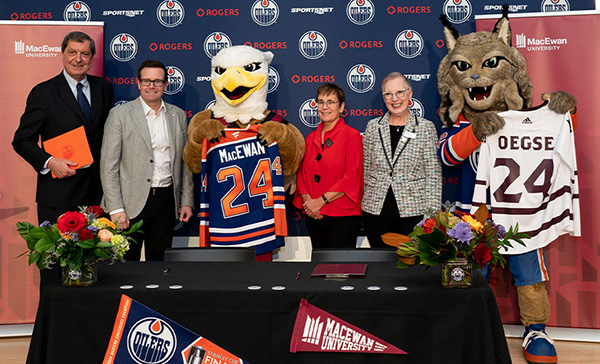CAREERS & EXPERIENCE
Experiential Learning
Connect theory to practice by participating in placements, projects, internships and field studies.
Get involved with student research and study abroad programs. Explore personal interests by joining clubs or groups. Gain experience and build your network through course projects with community partners.
Specialists in experiential learning can help you learn more about the academic and career advantages of these and other types of experiential learning opportunities.
If you are a Faculty of Arts and Science student who is interested in gaining work experience, work-integrated learning courses may be just what you're looking for!
In Work-integrated Learning (WINL) 301, you participate in a work-learning opportunity with an employer (paid) or community partner (unpaid). You apply the knowledge and skills you've learned in class to a practical setting, while expanding your network and gaining relevant hands-on experience related to your career goals.
WINL 301 has a course-based component (winter term) which includes seminars on resumé and cover letter writing, job search skills, coaching sessions and mock interviews. The practical component, in which you complete a minimum of 90 hours of paid or volunteer work, begins in the spring semester. If you choose to pursue paid work, you compete against other students for the job.
Interested students can learn more by contacting mycareer@macewan.ca.
Work with a group of students on a real-world project and enhance your own learning while supporting a community partner organization—that's what community-engaged learning is all about.
When you help a partner organization to solve a problem or meet a challenge, you gain crucial hands-on experience for your resumé while providing expertise that can be outside an organization's current capacity.
Before you enrol in classes, contact your department to find out which instructors may be offering community-engaged learning opportunities.
Contact us to discuss examples of community-engaged learning.
A co-op placement gives you hands-on experience that enhances your resumé and improves your job prospects. You have the opportunity to try out a particular career or workshop environment and to practice what you've learned in the classroom. All co-op students complete four co-op courses, in addition to the required 120 credits needed to graduate from the Bachelor of Commerce.
Visit MacEwanLife for all kinds of career-related information: job postings, career ideas, co-op and experiential learning placements, training modules and more.

Teaming up with Oilers
The partnership aims to see downtown vibrancy and growth of opportunities for MacEwan students.

Reimagining STEM outreach programs
A partnership between two MacEwan profs and a junior high teacher helps young learners see themselves as future university students.

“Sorry, You can’t park here”
Lauren Beatty is exploring how the City of Edmonton can ensure that communication around seasonal parking bans is clear for everyone.
Does your business or organization have a challenge that our students can help you solve? Or maybe a project that could use more expertise? Partner with a course-based project where a team of students uses current theory and best practices to your benefit while gaining real-world experience in their field.

Office of Research Services
MacEwan encourages undergraduate research through grant funding, research week, a research journal and student-led conferences and presentations. Let your curiosity lead you.

The traveller’s edge
New countries, new cultures, new situations. When you study or volunteer in another country, you learn new skills and gain experiences that set you apart when you enter the job market.

Volunteer at MacEwan
Make new friends, connect with like-minded people, build your resumé, make a difference on campus or in the community—when you volunteer, your world gets a little bit bigger.
